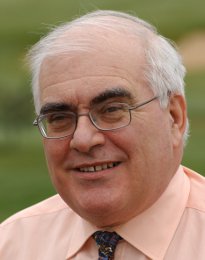
About your journalism
You specialise in military history and travel pieces – what initially inspired you to write on these subjects, and what is it about them that continues to hold your interest?
Growing up in South East London after the Second World War, with the wartime scars all around, probably stirred my interest. Trying to tease information out of my father, who had seen much action with the Royal Artillery and wasn't keen to talk about it helped me to become fascinated by the impact of war on ordinary people.
On travel I mainly write about the UK and the Channel Islands and never tire of visiting different areas.
Where are we likely to see your work?
I contribute regularly to Britain at War magazine and my byline also appears in a wide range of other publications, websites, and so on; The Dalesman, This England, Family Tree, Heritage (as was).
Since 2009 I've had three books published by Halsgrove – 'A Dictionary of the Battle of Britain', 'How to Survive in Cheshire' and 'A Dictionary of Bomber Command, 1939-1945'.
What’s the most memorable work you’ve done?
I could go back years to my days in the food trade press and recall revealing that the European 'butter mountain' was about to turn into a 'butter valley'.
Recently, I've been delighted to play a leading part in a supplement to Britain at War called 'Last of The Few'. There are only about 60 men left who flew with RAF Fighter Command in the Battle in 1940. I was pretty chuffed when the 'Battle of Britain Dictionary' came out – my first hardback book and representing many years of research.
Speaking to RAF airmen who served in the Second World War must bring up traumatic memories for your interviewees – how do you approach such sensitive subject matter, and ensure that the resulting pieces you write are respectful to their experience?
Because I've never been in the Services I start with a disadvantage in interviewing veterans. I try to treat them with respect, know the subject in advance and ask sensible questions (not as obvious as it sounds). It's vital to remember that experiences such as standing under a Stuka bomber screaming down at Dunkirk or being shot at by a German aircraft while coming down by parachute are always buried somewhere in the mind, and it may not be a direct reference which triggers the memory; it could be a name, a particular phrase, smell or colour. So tread carefully. Last year I attended the funeral of a pilot who had taken part in the intense fighting over Malta. He would say that he had great affection for the Maltese people, but never revisited the island after the war because he had lost so many friends there.
Is there a particular person or story that moved you?
Often, the most moving occasions are when there are only relatives available to interview. For instance, I have written about two young Spitfire pilots who were great pals, one Canadian and one a farmer's son from Somerset. They were killed five days apart in the Battle of Britain. If only I could talk to them as well.
Do you feel certain areas of the press are too sensationalist, or even unsympathic, when writing about these events?
Media coverage of military history is generally much better than it was a few years ago. There are journalists who don't prepare (I do know what the time pressures are) and ask daft questions. The word 'hero' is used far too often and the word 'Marshal' in military ranks, so often misspelt. Sometimes the historical howlers are encouraged by academics or institutions with their own agenda.
About you and PRs
Where do you source ideas for articles?
Most of my ideas come from my head, reading and observation – and what editors want. I'm always pleased to hear from PR people though. As I spent so long on that side of the fence, I had better tread carefully.
There are many PRs who are very good at media relations and extremely helpful. Then there are those who don't understand journalism and journalists, don't respect deadlines and generally sully the reputation of their employer or client. I've no doubt that often the problem for the latter stems from not giving credible advice to those who pay them.
About you
Apart from the hobbies that feed into your work, what other things do you like to do in your spare time?
Military history was a hobby that became a job. I follow the fortunes of Charlton Athletic and was there when they secured the Division 1 Championship recently.
How would you pay the bills if you weren’t a journalist?
I suppose I would relive my years in public relations, but I've got no plans to do so.
If we gave you £1000, how would you spend it?
My son's getting married, so I've already got a splendid holiday in the United States lined up. Therefore, I'd give the money to the National Memorial to The Few at Capel-le-Ferne in Kent. A new visitor centre is planned.
Do you tweet? Why, why not?
I tweet regularly – it's fun and it's been part of my campaign to re-establish myself in journalism after years in public relations.
What books are on your bedside table, magazines in your bag, or blogs on your screen?
Books on bedside table – the biography of Arthur Percival, the General who surrendered Singapore in the Second World War; The 1942-1954 diaries of James Lees-Milne who advised the National Trust on acquiring houses; 'Enduring Freedom', an anthology of poetry associated with the fighting in Afghanistan, edited by Ryan Gearing. Magazine – I'm a The Week addict.